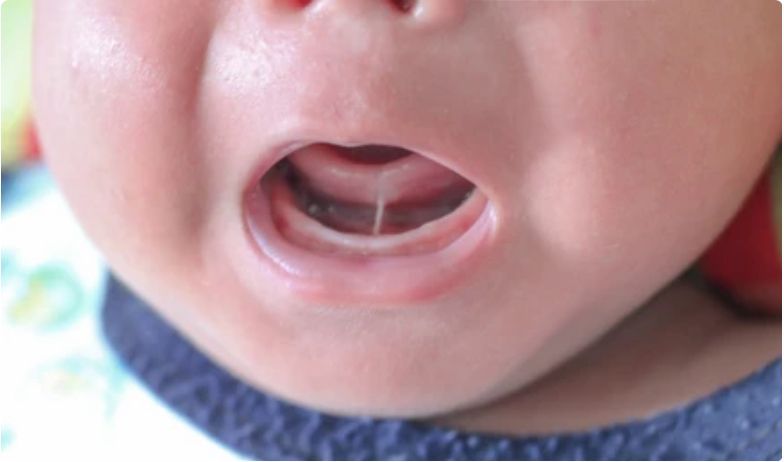Guide to Infant Formula

Development of infant formulas can be traced to the late 19th century, when in 1867, Liebig developed and marketed the first commercial product for infant feeding that contained cow milk, wheat flour, malt flour, and potassium bicarbonate. In 1915, Gerstenberger reported a 3-year experience using “synthetic milk, adapted” that contained nonfat cow milk, lactose, oleo oils, and vegetable oils. This product represented early understanding that cow milk required alteration to improve its acceptability for infant human consumption and is considered the precursor to modern infant formulas.
Government regulation of infant formula composition in the United States began in 1941 and underwent significant expansion with passage of the Infant Formula Act of 1980. The Infant Formula Act of 1980 and its amendments in 1986 defined minimum concentrations of 29 nutrients and established quality control standards for commercial production of infant formulas. Over the years, infant formula manufacturers resolved to develop products that mimic the complexities and performance of human milk, propelling a special committee of the Food and Nutrition Board of the Institute of Medicine to enhance regulatory and research procedures to assess the safety of potential new ingredients in infant formulas.
The landscape of infant formula in late 2021 is broad, and this guideline is meant to give you a thoughtful approach to infant formula choices, whether your baby is breast-fed and you are considering supplementation, or whether you are choosing to feed exclusively with formula. This list is comprehensive, though does not include every formula on the market. The following sections are organized according to standard formula and specialized formula, which may be indicated under certain circumstances. We always recommend you discuss these choices with your pediatrician or nurse practitioner prior to making changes in your baby’s nutrition.
STANDARD COW-MILK BASED FORMULA. Standard formula is generally based on cow-milk protein, whey and casein, in a 60:40 balance (casein is the protein that forms curds with exposure to stomach acid, and whey is the thinner protein that empties from the stomach more rapidly). Lactose in the standard carbohydrate (sugar) in standard cow-milk based infant formula. Approximately 50% of the caloric content of human milk is contained in its lipid component, which is rich in palmitic, oleic, linoleic, and linolenic fatty acids. Current formulas contain specific blends of vegetable oils designed to mimic the ratios of saturated, monounsaturated, and polyunsaturated fatty acids in human milk. Docohexaenoic acid (DHA) and arachidonic acid (ARA) are long-chain fatty acids present in human milk and have been found to accumulate rapidly in the fetal retina and brain during the last trimester of pregnancy, continuing until 2 years of age: all standard cow-milk based formulas contain DHA and ARA. All formula contains vitamins and minerals, essential for growth and wellness. Prebiotics and probiotics are added to some standard formulas to increase the concentration of bifidobacteria and lactobacilli in the stools of preterm and term infants, mimicking the pattern of the breast-fed baby. Some examples of standard cow-milk based formulas are Enfamil Lipil, Enfamil NeuroPro, Similac Advance, Similac Pro-Advance, Target Up and Up Advantage, Walmart Parents Choice Advantage, Costco Kirkland ProCare, and the organic formulas Similac Organic, Earths Best Organic, HIPP Organic, and Bobbie Organic.
MODIFIED COW-MILK BASED FORMULA. For infants who may be showing some intolerance to the carbohydrate content of standard infant formula (bloating, gas, fussiness), lactose-free formulas are available (Similac Sensitive, Similac Pro-Sensitive, Enfamil NeuroPro Sensitive, Parents Choice Sensitivity, Up and Up Sensitivity, Kirkland For Babies Sensitive to Lactose). For babies who may be who may be showing non-specific formula intolerance, Enfamil GentleEase, Earths Best Sensitivity and HIPP Comfort are good choices: they are lactose reduced and the proteins are partially broken-down (hydrolyzed) for easier digestion. For babies who may be showing some intolerance to the protein content of standard infant formula (colic, pain, mucous in the stools, respiratory congestion), casein-free formulas are available (Similac Pro-Total Comfort, HIPP Comfort, and the whole spectrum of Nestle/Gerber/Good Start Gentle formulas, which are 100% whey and partially hydrolyzed for easier digestion). For infants who are showing signs of gastroesophagel reflux (excessive spitting up, arching, discomfort with swallowing), there are several formulas that have added rice starch or locust bean gum to thicken the formula in the stomach and provide protection against reflux (Enfamil AR, Similac for Spit Up, Parent Choice Added Rice Starch, and HIPP Anti-Reflux).
HYPOALLERGENIC FORMULA. For infants who may be showing true allergy to intact milk-based formulas (blood and mucous in the stool, severe colic, severe eczema), hypoallergenic formulas are available. These are still milk-protein based, though they are extensively hydrolyzed, lactose-free, and most with added probiotics to support digestive health. Hypoallergenic formulas on the market now include Enfamil Nutramigen, Similac Alimentum, Gerber Extensive HA (100% hydrolyzed whey), and HIPP HA (100% whey, does contain lactose).
ELEMENTAL FORMULA. For infants who are still symptomatic after trying hypoallergenic formula, even more specialized formulas are available that are made from pure amino acids that require minimal digestion and do not contain allergenic/ inflammatory properties. These include Neocate, Enfamil PurAmino, and Abbott/Similac Elecare.
PLANT-BASED FORMULA. For infants raised on a vegan diet, plant-based formulas from soy protein are available. These include Enfamil Prosobee, Similac Isomil, Good Start/Gerber Soy, Parent Choice Soy, and Earths Best Organic Soy. Since soy is a natural source of plant-based estrogens, we generally do not recommend soy formula for babies who are able to breast feed or tolerate cow-milk based formula.
GOAT-MILK FORMULA. Goat milk is another mammalian source of milk, containing casein, whey and lactose similar to cow milk. Goat-milk formulas are marketed for use in babies with digestive issues, as goat milk has naturally less lactose than cow milk, and the proteins are smaller and may be easier to digest. Babies with cow-milk protein allergy or true lactose intolerance should not be on a goat milk product, as up to 90% of those that react to cow milk will react to goat milk. At Children’s Medical Association, we traditionally do NOT recommend goat-milk formula.
OTHER SPECIALTY FORMULAS. Enfamil Enfacare and Similac Neosure are infant formulas specifically designed to meet the needs of premature infants, with additional calories, protein, vitamins and minerals to support catch-up growth, bone mineralization, and improve health and development. Enfamil Reguline is a cow-milk formula featuring a blend of prebiotics and hydrolyzed proteins to ease constipation. Similac Supplementation for Breast Feeding Moms is marketed as a gentle introduction to formula for babies who otherwise breast feed.
Choosing an infant formula can be overwhelming! We are here for you. Reach out on the portal or schedule an appointment to come see us in the office if you are wondering about how to chose the right infant formula for your baby.


























